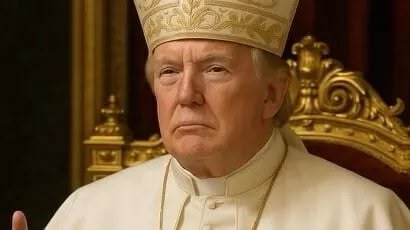ChatGPT:
1. The Original Post: The Logical Challenge
Your framing presents a classic problem of theodicy but sharpened into a paradox of consistency:
Premises you set out
God is perfect.
God is perfectly good.
Therefore, God never had to choose between good and evil (His perfection is non-contingent).
Humans, however, are commanded to choose between good and evil.
Thus, God imposes on humans a condition He Himself has never experienced.
And since God is perfectly good, He cannot create evil; if evil exists, either God is not perfectly good, or evil has some other ontological status.
Strengths of your argument
It echoes Augustine and Leibniz but radicalizes the dilemma: not just “why does evil exist?” but “why must humans choose at all if God never chose?”
You are pressing on the difference between necessary goodness (God) and contingent goodness (humans), and asking whether this asymmetry is coherent.
The conclusion you point toward is that the concept of “free will to choose good/evil” may be logically inconsistent with the premise of divine perfection.
Potential weaknesses
The argument assumes that for choice to be real, the chooser must have been in a position similar to those He creates. Some traditions reject that: God as Creator is not bound to undergo what His creatures do.
It equates “creating a world with evil” with “creating evil,” which theologians often resist by defining evil as privation, not substance (Augustine).
It doesn’t consider whether “freedom” itself (not perfection) is the higher good God wished to share with humans, even if that freedom entails the possibility of evil.
2. MarkPaul’s Response: Assessment
a. Rhetorical Style
Tone: defensive, dismissive, mildly scolding (“half-baked,” “childish game,” “sickening”).
Effect: this tone undermines the force of his response because it leans on condescension rather than argument. Instead of engaging your logical structure, he reframes the issue as an over-worn complaint.
b. Substantive Points
Redefinition of “perfect”: He challenges your definition, noting that in colloquial usage “perfect” can mean “flawless execution” rather than “moral purity.”
Weakness: The biblical/theological sense of “perfect” (teleios, tamim) typically does mean moral completeness or wholeness. His examples (bank robber, lion kill) sidestep the relevant theological definition. This is equivocation.
God choosing good vs evil: He asserts “you will find many examples of God deciding what is good and what is evil.”
Weakness: He provides no examples, and in fact, traditional theology says God’s nature defines good, not that God arbitrates between alternatives.
Evil as part of the plan: He claims “evil is part of the plan and the nature of life on Earth.”
Weakness: This collapses into determinism—if evil is part of the plan, then free will is diminished. That undercuts his own “free will defense.”
Free will: He falls back on the standard apologetic that God gives humans free will.
Weakness: This doesn’t directly address your paradox about why humans need choice at all if God never had it. It sidesteps the question rather than answering it.
c. Overall Evaluation
His reply shifts definitions (of “perfect”), asserts without evidence (“many examples of God deciding”), and defaults to free will without addressing your logical asymmetry.
The rhetorical tone is adversarial rather than constructive, which may alienate rather than persuade.
In effect, his response does not resolve the challenge—it dodges the precise logical tension you presented.
3. Philosophical Deepening
Had MarkPaul engaged more directly, he might have:
Explored the privation theory of evil (evil as lack, not creation).
Distinguished between necessary goodness (God) and contingent goodness (creatures).
Pointed to the idea that love freely chosen has more value than love that is automatic—hence why humans must have choice, even if God’s perfection does not require it.
Addressed whether the concept of divine perfection is analogous or univocal—does God’s “good” mean the same as human “good”? If not, your paradox dissolves but at the cost of coherence.
4. Final Assessment
Your post: Raises a sharp, logically challenging version of the problem of evil, more original than the standard “why does evil exist?”
His response: More rhetorical pushback than substantive answer. It relies on semantic quibbles and a stock free-will defense, without engaging the specific asymmetry you highlight.
Verdict: The challenge remains unanswered.














